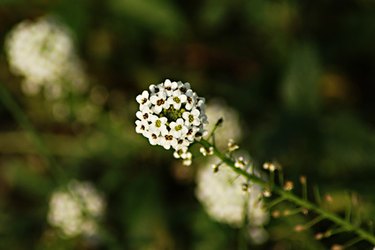
Astragalus is an herb known scientifically as Astragalus membranaceus, and commonly as milk vetch and locoweed. It has been used in Traditional Chinese Medicine for centuries, being known as Huang Qi. Native to parts of China and a member of the pea family, this bushy perennial plant grows from a hairy stem that produces clusters of small flowers. The large yellow taproot of the plant is the part used in herbal preparations. Astragalus root can be taken by children and adults, but the dosage differs according to the type of preparation being used and the size of the individual. Consult your healthcare provider or herbalist for the correct dose for you.
Uses
Video of the Day
Astragalus root is an adaptogen herb that aids the body in dealing with a variety of stressors, including chemical, physical and emotional stress. Phyllis A. Balch, author of "Prescription for Herbal Healing," states that it works to suppress some immune functions while enhancing others. Astragalus root contains antioxidants, which act to remove harmful free radicals from the body. In Traditional Chinese Medicine, astragalus is given following a heart attack to keep the blood fluid. It is also used to treat constipation and bladder infections, to protect against cold viruses and to bolster the immune system following cancer treatment. It is used topically to treat some types of burns.
Video of the Day
Adult Dosage
Astragalus root can be taken in a standardized extract, tea or decoction, powdered root, tincture or ointment, all of which have their recommended dosages. For adults, the University of Maryland Medical Center suggests taking 250 to 500 mg standardized extract three to four times daily. A 1:1 fluid extract of 2 to 4 mL can be taken three times per day, as can 3 to 5 mL of a 1:5 tincture. A tea containing 6 to 12 g of dried root in 12 ounces of water can be used three times daily, and 500 to 1,000 mg of powdered root is taken three to four times a day. For burns, use a 10 percent astraglus topical ointment, as directed by your physician.
Pediatric Dosage
Astragalus root should only be given to a child under your healthcare provider's direct supervision, and it should never be given to a child with a fever. The University of Maryland Medical Center states that the pediatric dosage is calculated using the standard adult dosage based on a 150-lb. individual. For example, a child weighing 50 lbs. would take 1/3 the adult dosage, and a child weighing 35 lbs. would take about 1/4 the adult dose.
Precautions
You should take astragalus root preparations with a full glass of water. Drugs.com recommends drinking extra fluids with this herbal medicine, as it can cause a blockage in your esophagus or bowels. Do not take astragalus root for more than seven consecutive days unless your physician instructs otherwise. Don't take astragalus root if you are pregnant, breastfeeding, have trouble swallowing or are taking immunosuppressant medications.